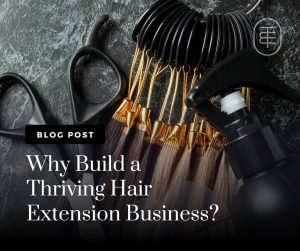Hair Extension Business Online in Nigeria
The beauty industry in Nigeria is booming, and one of its fastest-growing segments is the hair extension business. Nigerian women are known for their love of stylish, quality hair—whether it’s bone straight, curly, afro-kinky, or braided styles. With a large and ever-growing market, launching an online hair extension business in Nigeria offers exciting profit potential.
But how do you get started the right way—without wasting money or falling for supplier scams?
This guide walks you through everything you need to know to start a successful online hair extension business in Nigeria, step by step.
Why Start a Hair Extension Business in Nigeria?
Before jumping into the how-to, it’s important to understand why this is such a hot opportunity:
-
High demand: Hair extensions are part of daily fashion culture in Nigeria. From students to working-class women and celebrities, everyone wears wigs or weaves at some point.
-
Repeat customers: Hair is not a one-time buy. Most customers return for different styles, colors, and textures.
-
Online growth: Many Nigerians now shop online through Instagram, WhatsApp, and eCommerce stores.
-
Low overhead: You can start with minimal capital using dropshipping or buying inventory in small batches.
Step-by-Step Guide to Starting Your Online Hair Extension Business
1. Do Market Research
Understand your target audience and competition:
-
Who are your ideal customers? (e.g., working women, students, brides)
-
What styles and lengths are in high demand in Nigeria?
-
How much are people willing to spend?
-
What are your competitors doing on Instagram or Jumia?
Use tools like:
-
Google Trends
-
Instagram hashtags (#nigerianhairvendor, #humanhairnaija)
-
WhatsApp polls or surveys
-
Facebook groups related to beauty or fashion in Nigeria
Pro Tip: Focus on a niche like bone straight wigs, afro-kinky curls, or bridal hair bundles to stand out.
2. Choose Your Business Model
There are three main business models:
a) Dropshipping Hair Extensions
You list products online and only order from your supplier when someone buys. No inventory needed.
b) Buy and Resell (Import or Local Vendors)
You buy hair in bulk from trusted sources and resell for profit. You have more control over quality and delivery.
c) Custom Wig Making
If you have wig-making skills, you can buy raw hair and sew custom wigs for clients.
Each has pros and cons, so pick one based on your budget, skills, and time availability.
3. Find a Reliable Supplier
One of the most important steps! Choose suppliers who offer authentic human hair, fast shipping, and good customer service.

Options include:
-
Local Nigerian vendors (e.g., Lagos markets like Balogun or Trade Fair)
-
International vendors from Vietnam, India, China
-
Online platforms like Alibaba, 1688, or hair vendor directories
What to look for:
-
100% human hair (no synthetic mix)
-
Consistent quality across orders
-
Transparent pricing
-
Ability to provide videos or samples
-
Positive reviews or recommendations
Tip: Always test hair quality before bulk buying.
4. Register Your Business (Optional but Recommended)
To look more professional and avoid issues later, register your business name with Nigeria’s Corporate Affairs Commission (CAC).
Benefits include:
-
Building trust with customers
-
Getting a corporate bank account
-
Running ads more easily on Facebook or Instagram
Cost: Usually between ₦10,000–₦25,000 depending on the agent or process.
5. Brand Your Business
Your brand is your identity. It’s what makes you stand out in a competitive market.
Elements of good branding:
-
A memorable business name (e.g., HairbyAda, LagosHairBoss)
-
A clean logo
-
A strong Instagram bio
-
High-quality product images
-
A consistent tone (luxury, affordable, bridal, etc.)
You can design a logo using tools like Canva or hire a designer on Fiverr or Upwork.
6. Set Up an Online Storefront
You don’t need a physical shop to start. Here are three simple ways to sell online:
a) Instagram and Facebook
This is the most popular way for Nigerian hair vendors. Post clear photos, use stories, run ads, and use hashtags to grow.
b) WhatsApp Business
Use product catalogs, quick replies, and broadcast messages. Create a branded link for easy contact.
c) Shopify or Flutterwave Store
You can create a simple eCommerce store with:
-
Product listings
-
Payment integration (Paystack, Flutterwave)
-
Delivery options
Start small and grow as your audience builds.
7. Take Quality Photos and Videos
Hair is a visual product. Your customers want to see what they’re buying.
Tips for content:
-
Use natural light
-
Show different angles
-
Create “before and after” videos
-
Film yourself or models installing the hair
-
Add captions like “Bone Straight 18 inches – ₦35,000”
Bonus idea: Offer free or discounted hair to local influencers or hair stylists for reviews and exposure.
8. Set Competitive Prices
Your pricing should cover:
-
Cost of hair
-
Shipping
-
Branding/packaging
-
Delivery within Nigeria
-
Your profit margin
Example: If you buy a wig for ₦25,000, delivery adds ₦2,000, and packaging ₦1,000 — your total cost is ₦28,000. You can price it at ₦35,000–₦40,000 depending on the market.
9. Promote Your Business
You can’t sell what people don’t see. Use online marketing to reach your target audience.
Top promotion strategies:
-
Instagram/Facebook ads targeted to Nigerian women (age 18–45)
-
Influencer marketing
-
Giveaways and discounts
-
WhatsApp status updates and broadcast messages
-
TikTok videos showing how to install or style hair
-
Google My Business listing (for Lagos or Abuja-based vendors)
10. Handle Payment and Delivery
Set up secure payment methods like:
-
Paystack or Flutterwave
-
Bank transfers (preferably to a business account)
For delivery, work with trusted local courier services like:
-
GIG Logistics
-
Kwik Delivery
-
DHL (for international clients)
Always confirm addresses and offer tracking numbers to customers.
Common Mistakes to Avoid
-
Selling synthetic hair as human hair
-
Working with untested suppliers
-
Ignoring customer complaints or reviews
-
Using low-quality product photos
-
Not having a return/refund policy
-
Overpricing your hair without offering value
Conclusion
Starting a hair extension business online in Nigeria can be a highly rewarding and profitable venture—if done right. With high demand, repeat buyers, and the power of social media, even small vendors can grow into recognized brands.

















Thank you for the good writeup It in fact was a amusement account it Look advanced to far added agreeable from you However how could we communicate